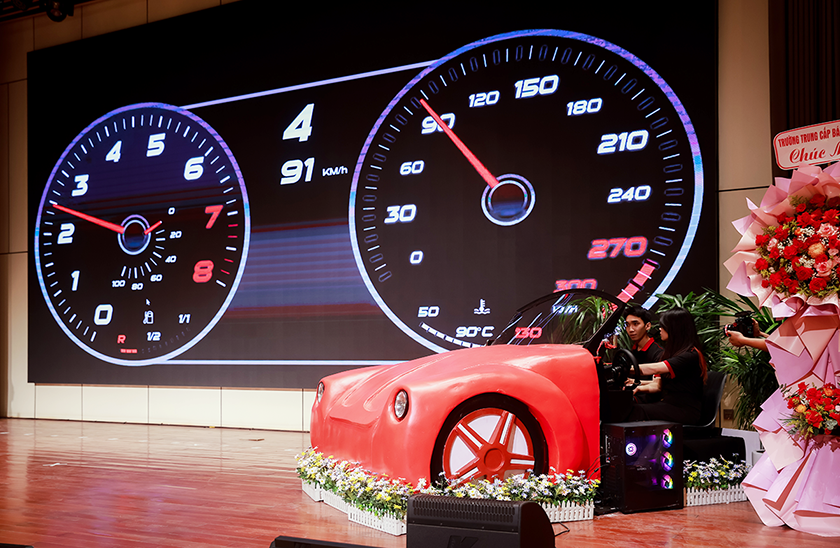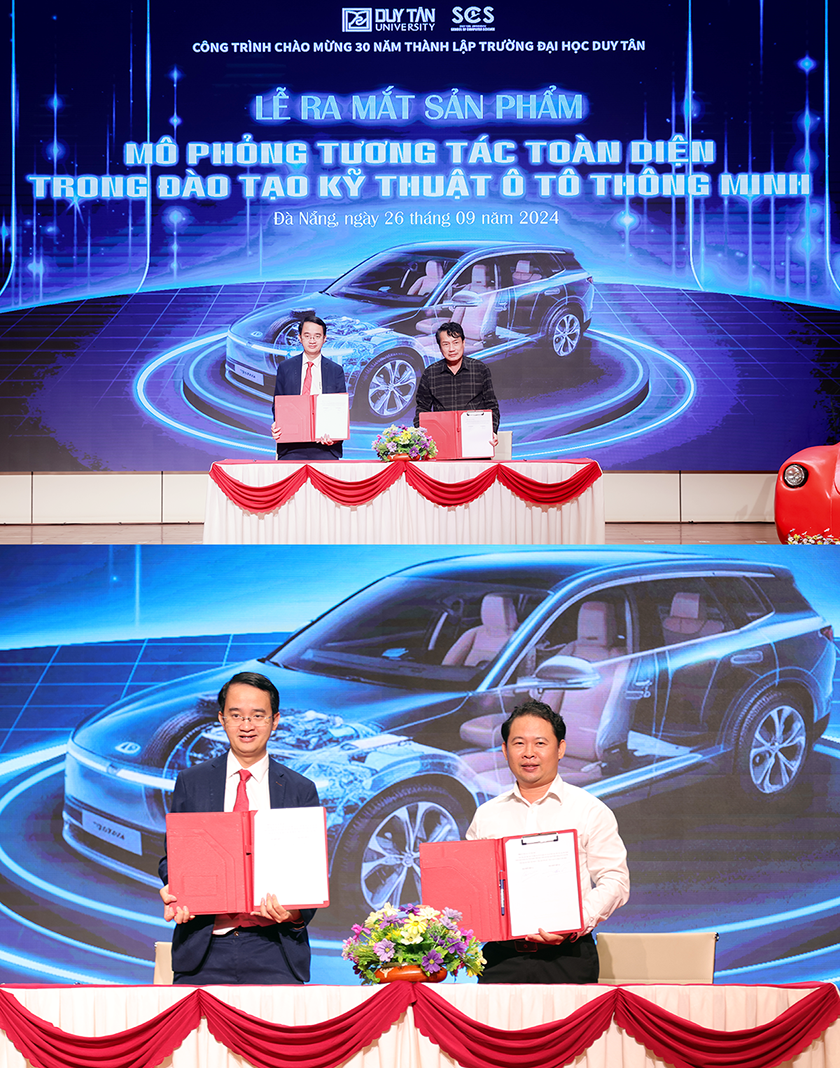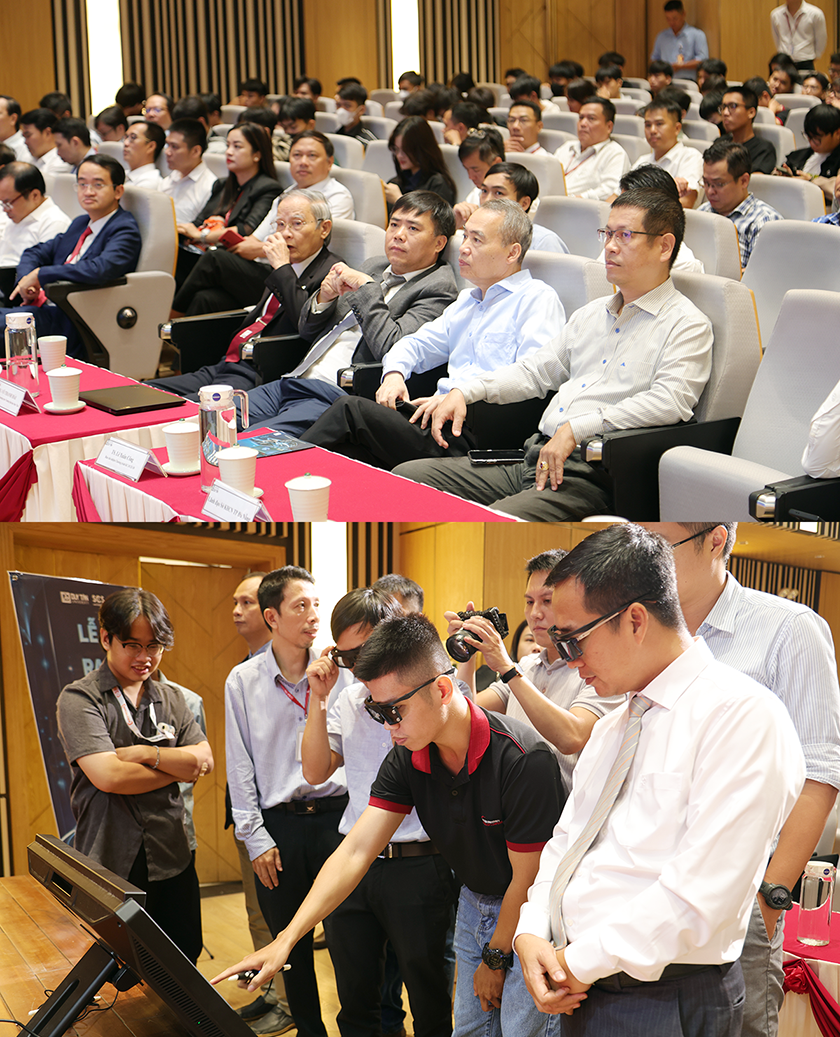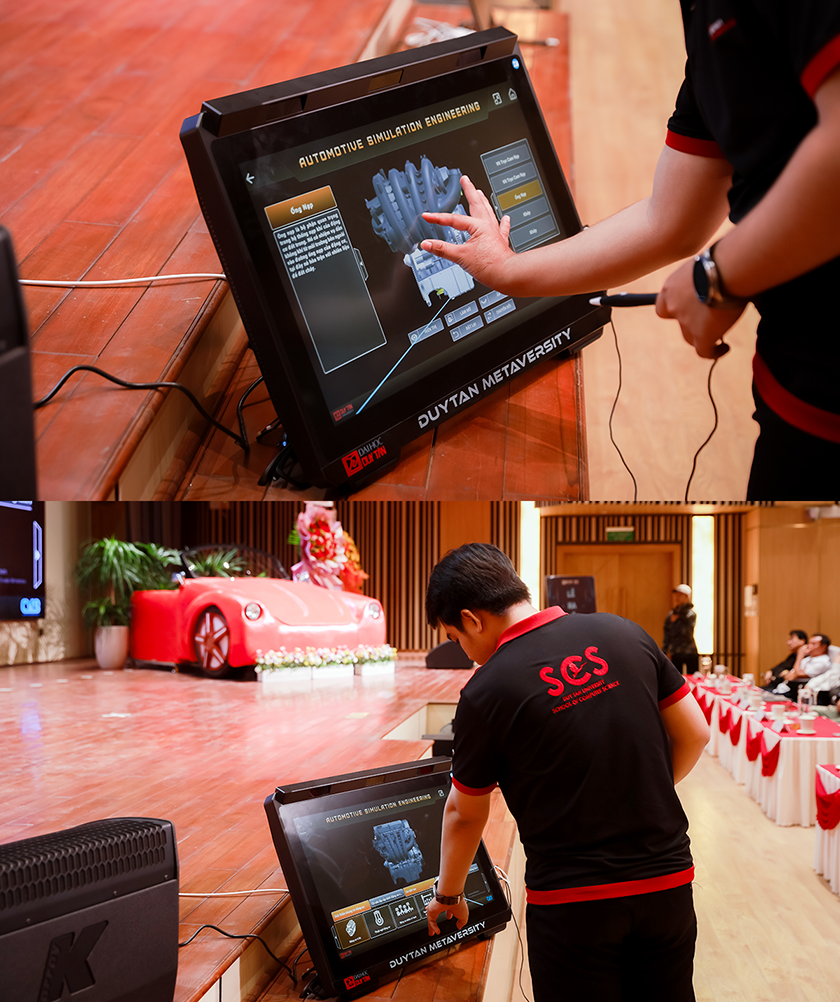At the unveiling of the “Comprehensive Simulation & Interaction in Smart Automotive Technology Training” on September 26, 2024, attendees not only gained in-depth technical insights but could even experience this most advanced automotive technology training simulation technology.
DTU’s “Comprehensive Simulation & Interaction in Smart Automotive
Technology Training” was officially unveiled
“The demand for high-quality manpower in sectors like automotive technology, automation, and AI has never been more critical, especially with the ongoing impact of the Industrial Revolution 4.0,” a representative from the Department of High Technology of the Ministry of Science & Technology shared their thoughts on the current context and the demand for skilled professionals in automotive technology during the event. “The development of smart automotive technology, with trends like self-driving cars, electric vehicles, and IoT connectivity, is transforming the way we travel, work, and live. Enhancing the quality of automotive technology training and applying advanced technologies in instruction is therefore urgent and will contribute directly to the development of the future workforce for the country.
“The product DTU presented today is a breakthrough in the application of modern technology in instruction and training. It harmoniously blends theory with practical experience and bridges textbook knowledge with real-world application. This approach gives students direct engagement with smart automotive technologies and will help them master the technology faster and more effectively. We highly appreciate the creativity and dedication of DTU’s research team in developing this product.”
DTU signed partnerships with automotive technology training institutions to put the simulator into practical use
The “Comprehensive Simulation & Interaction in Smart Automotive Technology Training” is the result of a scientific research project by the DTU Center for Visualization & Simulation (CVS). It was designed to create a breakthrough training solution with comprehensive simulation and interaction technology, specifically tailored for smart automotive technology. Instead of just learning theory, students can now practice directly using the comprehensive simulation and interaction technology and they will more effectively absorb automotive engineering and mechanics knowledge.
Key features of the product include:
- realistic simulation: accurate portrayal of automotive parts, components, systems, and structures, and students can practice in a safe simulated environment,
- comprehensive interaction: interactive technology enables direct engagement with 3D models and enhances the learning experience,
- continuous updates: training content is regularly updated to reflect the latest technological trends in the automotive industry.
Delegates experienced the advanced 3D simulation technology
Easy to apply in training and practice, the new product from the DTU Center for Visualization & Simulation is expected to deliver numerous benefits:
- training effectiveness and quality enhancement: students can practice in groups with unlimited repetitions, and instructors can easily monitor each student’s progress and adjust what they are learning accordingly,
- cost and time reduction: saves training institutions on equipment costs and shortens learning time,
- remote learning optimization: eLearning combined with simulation and interaction allows students to learn anytime, anywhere, while maintaining the quality of in-class learning,
- development of specialized practical skills: allows students to acquire practical skills before working on real equipment, boosting their confidence, accuracy, and efficiency,
- absolute safety: practice of hazardous scenarios are possible in a safe and risk-free, simulated environment.
The product’s data and technology are divided into 12 groups:
- the 12 major sections of a vehicle,
- 144 smaller groups,
- 125 subgroups, and
- over 2,000 individual components.
Each component is modeled in 3D with high accuracy and goes with the corresponding color schemes and material simulation systems. The detailed and complete engine models allow both instructors and students to fully and effectively experience the technology. Additionally, the product uses AR/MR technology to enable students to interactively explore the engine components.
The CVS provided direct guidance on how to use the product during the launch
“The ‘Comprehensive Simulation & Interaction in Smart Automotive Technology Training’ enables Automotive Technology students at DTU to connect theory and practice,” Dr Nguyen Van Chung, Director of the CVS under the DTU School of Computer Science (SCS), said, “and it allows a technology transfer to universities, colleges, and training centers specializing in automotive-related fields. In the future, we plan to expand the product’s features to include hybrid engines, electric engines, maintenance and repair simulations, and autonomous vehicle simulations. We also intend to broaden its application to other sectors, such as aerospace engineering, mechanical engineering, and electronics.”
The CVS under the DTU School of Computer Science has applied numerous advanced techniques and technologies to create valuable products in various fields, including healthcare, engineering, architecture, and environmental sciences. With their modern facilities and a team of experienced experts, the Center has earned numerous awards:
- Young Knowledge for Education award (2016),
- first prize in the Vietnamese Talent awards (2017),
- ASEAN ICT silver medal (2018),
- Sao Khue award (2020).
These accolades further solidify its position as a leader in the field of simulation and modeling, and the Center strives to collaborate with both domestic and international partners to commercialize products that benefit the community.
(Media Center)



















